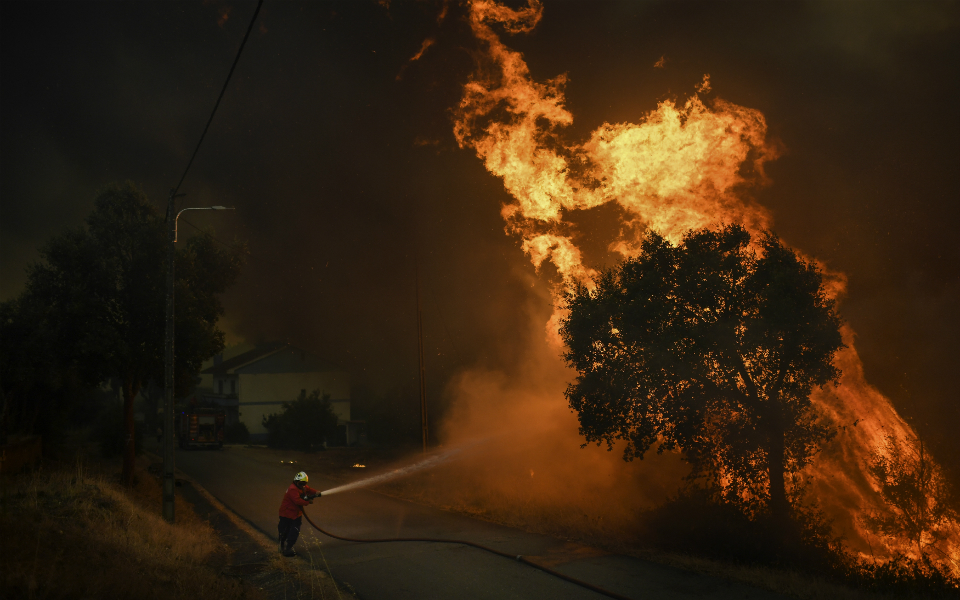Iberian Peninsula Faces Extreme Fire Risk Amid Worsening European Trend
An environmental policy alert was issued today by the European Union's Copernicus Emergency Management Service, placing the Iberian Peninsula under “extreme conditions” for wildfire risk over the next seven days. The announcement, based on the latest Fire Weather Index data, highlights a significant and immediate threat to both Portugal and Spain, raising concerns about environmental security and climate change adaptation. The warning, effective from today, August 5th, through August 12th, points to a dangerous combination of high temperatures and dry winds that dramatically increases the likelihood of large, uncontrollable fires. This situation is not isolated, with southern France, the Mediterranean coast, Bulgaria, and Romania also facing heightened alerts, reflecting a continent-wide challenge.
The formal announcement from the Forest Fire Information System, a dependency of Copernicus, serves as a critical environmental impact notice for national governments and regional authorities. It calls for increased vigilance and the mobilization of preventative measures to mitigate potential damage to natural habitats and protect biodiversity. The data presented in the associated report reveals a troubling escalation in fire incidents across the European Union this year. A total of 1,478 fires have been detected since the start of 2025, which represents an increase of 448 incidents compared to the same timeframe in 2024. This surge in fires has led to a substantial increase in environmental degradation, with the total burnt area more than doubling from 164,967 hectares last year to 353,862 hectares to date.
This sharp increase in both the frequency and scale of wildfires is consistent with climate change models that predict more frequent and intense extreme weather events. Duarte Cordeiro, Portugal’s Minister for the Environment and Climate Action, recently commented on the nation's strategy. “Our environmental policy is increasingly focused on adaptation and resilience. The data from Copernicus confirms the urgency of our national plan for integrated fire management, which combines prevention with a robust response capability. We are investing in landscape management and supporting communities in creating more fire-resistant environments.” This statement underscores the government's official position on treating wildfires as a core environmental policy issue, moving beyond simple emergency response to a more holistic, preventative framework.
Need Expert Guidance?
Get personalized insights from verified real estate professionals, lawyers, architects, and more.
The impact on biodiversity and conservation initiatives is a primary concern for environmental organizations. Quercus, a leading Portuguese environmental association, has repeatedly called for more stringent enforcement of land-clearing regulations around properties and a shift in forestry practices away from monoculture plantations of eucalyptus, which are highly flammable. “The current fire risk is a direct consequence of past land-use policies and the accelerating impacts of climate change,” a Quercus representative might state. “Protecting our natural heritage requires a fundamental rethinking of how we manage our rural landscapes and a firm commitment to restoring more resilient, native ecosystems.” The organization advocates for greater community awareness and education on environmental stewardship as a key pillar of any effective long-term strategy.
From a regulatory perspective, the alert triggers specific protocols within Portugal's Civil Protection authority (ANEPC). These include the pre-positioning of firefighting assets in high-risk regions and public awareness campaigns advising against any activities that could ignite a fire. The situation also puts a spotlight on cross-border cooperation, as fires in one country can easily spread to another. The EU's Civil Protection Mechanism is on standby to facilitate the deployment of international aid, such as firefighting aircraft, should a national government's resources become overwhelmed. This framework for international environmental cooperation is essential for managing large-scale disasters that do not respect national borders. The coming week will be a critical test of these integrated systems and the effectiveness of current environmental policies in safeguarding the Iberian Peninsula's vulnerable ecosystems.
Discover eco-friendly properties and green developments at realestate-lisbon.com.





